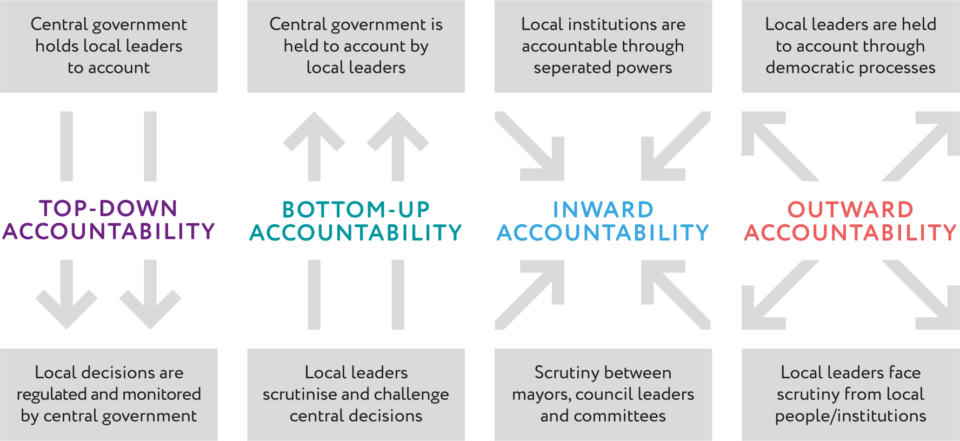The fostering of economic growth and productivity at a place-based level requires well-designed and well-functioning devolved institutions. This report identifies four different types of accountability and explores each of these in turn in relation to the emerging model of English devolution.
These are:

We advance a number of key recommendations based upon the analysis set out in the body of this paper. These include proposals to:
Improving accountability as the English devolution model is developing is vital if we want to tackle some of the causes of the decline of local democracy and for UK government to deliver on the missions of improving economic growth, productivity and living standards across England. For policymakers – both locally and nationally – getting accountability right is a multi-faceted and complex challenge. Bringing together separate debates about citizen engagement, local media, business and employer leadership, accountability to Westminster, and mechanisms for scrutiny under the heading of ‘improving accountability,’ should ensure more joined up and systemic thinking in this area.
Authors: Jack Newman (University of Bristol), Sam Warner (The University of Manchester), Michael Kenny (University of Cambridge), Andy Westwood (The University of Manchester)